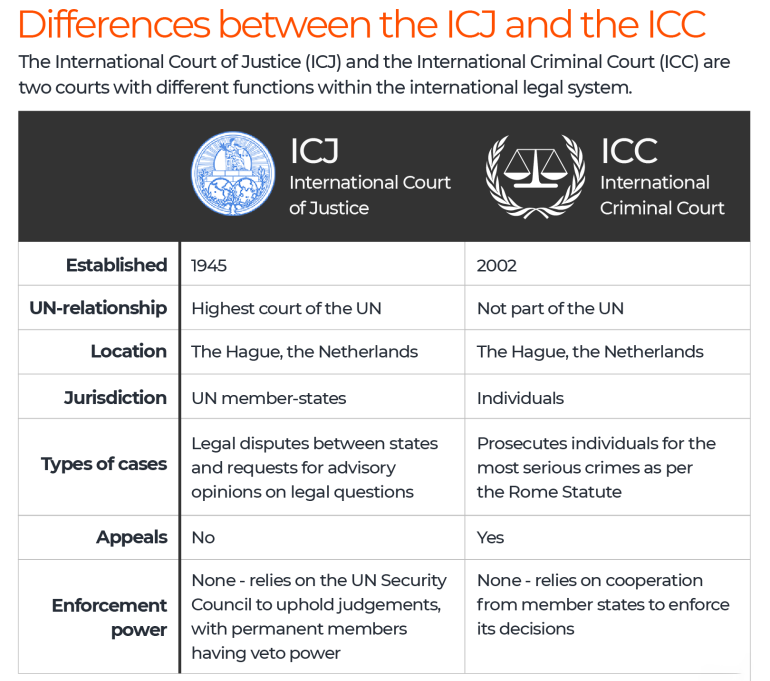International Criminal Court (ICC) | 12 Jul 2025
The International Criminal Court (ICC) has issued arrest warrants against Taliban leaders under Article 7(1)(h) of the Rome Statute for crimes against humanity, citing systematic gender and political persecution in Afghanistan.
International Criminal Court (ICC)
- About: ICC is the world’s first permanent international court established to prosecute individuals for the most serious crimes of global concern.
- It is headquartered in Hague, Netherlands and governed by the Rome Statute, which is the founding treaty of the ICC, adopted on 17th July 1998 and entered into force on 1st July 2002.
- Crimes Under ICC: The Rome Statute grants the ICC jurisdiction over 4 core international crimes- Genocide, Crimes against Humanity, War Crimes, Crime of Aggression.
- Jurisdiction & Mandate: The ICC prosecutes individuals, not states, for grave international crimes and cover crimes committed after 1st July 2002, the date the Rome Statute came into effect.
- It acts only when national jurisdictions are unwilling or unable to prosecute.
- The Court has jurisdiction in countries that are parties to the Rome Statute, or in non-member states if referred by the UN Security Council (UNSC).
- Parties to ICC:
- The Rome Statute has been ratified by 125 countries, including the UK and most European nations. Over 30 others have signed but not yet ratified the treaty.
- Afghanistan has been a member since 2003, while India, along with countries like the US, Israel, China are not parties to the ICC.
- India has raised objections due to concerns over sovereignty and the UNSC's referral powers within the Court's framework.
- Structure: The Presidency, Judicial Divisions, Office of the Prosecutor and the Registry are its 4 main organs.
- The Assembly of States Parties (ASP), consisting of representatives from member states, provides legislative oversight and ensures proper governance of the ICC.
- Enforcement: The ICC lacks its own police or enforcement mechanism and relies on voluntary cooperation of member states for arresting and surrendering accused individuals, freezing assets, and implementing its sentences.
| Read More: International Criminal Court (ICC), ICJ Proceedings: South Africa vs. Israel |

